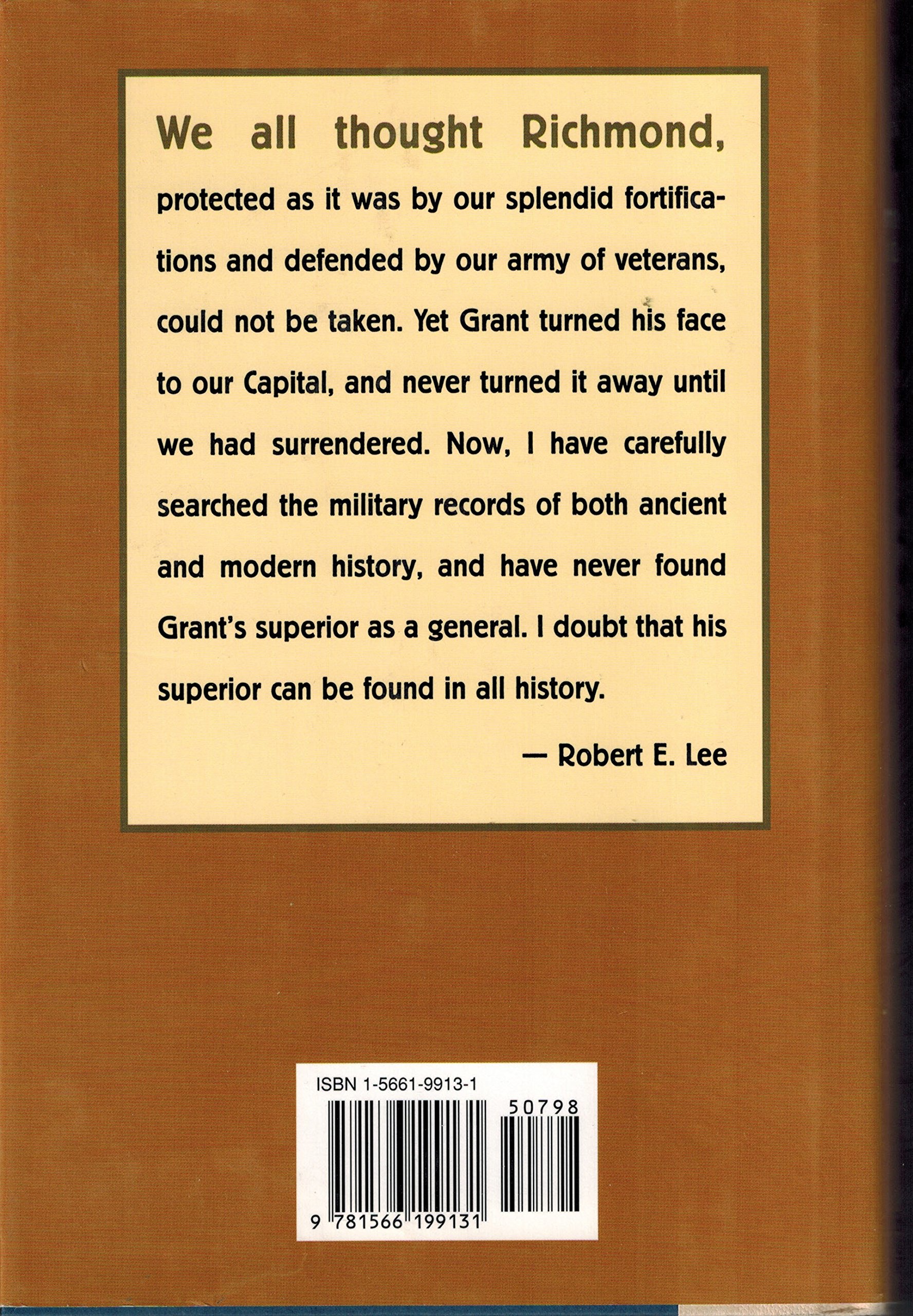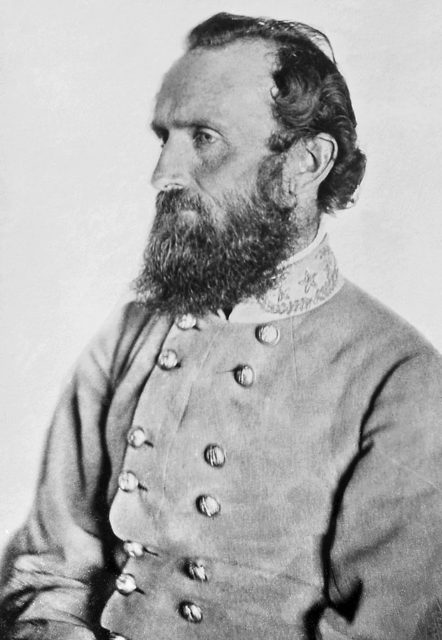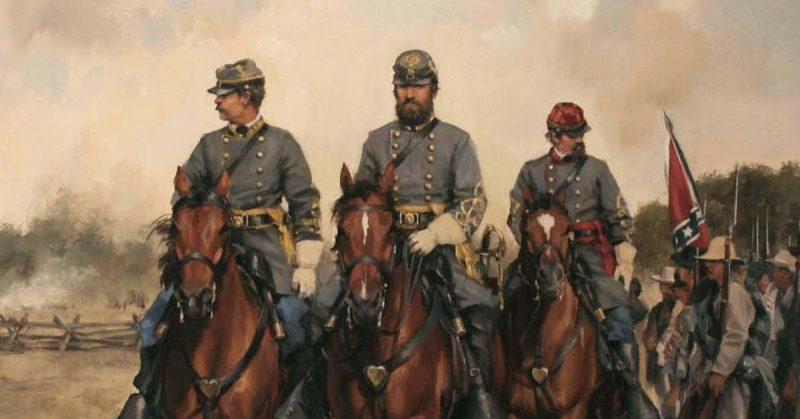Poignancy hasn't ever been my thingy so you can abandon that tact. I don't even try and if I have to try in anything I move on to something else easier.
That's strike six (and seven) btw so you've managed to pull off your single handed double out. Grab some bench why doncha.
Thx though for stopping your rapid exit to come back and talk more. So here's RE Lee's estimation of Grant as a general, from the book on Grant by General Sir James Marshall-Cornwall...
Within a few weeks of Grant's death, a member of General Lee's staff [Col. Marshall] said to a friend: "That reminds me of Lee's opinion of your great Union general, uttered in my presence in reply to a disparaging remark on the part of a person who referred to Grant as a 'military accident, who had no distinguishing merit, but had achieved success through a combination of fortunate circumstances.'
General Lee looked into the critic's eye steadily, and said: 'Sir, your opinion is a very poor compliment to me. We all thought [pg. 26] Richmond, protected as it was by our splendid fortifications and defended by our army of veterans, could not be taken. Yet Grant turned his face to our capital, and never turned it away until we had surrendered. Now, I have carefully searched the military records of both ancient and modern history, and have never found Grant's superior as a general. I doubt if his superior can be found in all history.'"
Knowing that Colonel Marshall was General Lee's military secretary, present at Appomattox, the message he gave was that Grant was knightly and noble and General Lee thought so also. Grant's terms, according to Colonel Marshall, were carefully written as to not humiliate the Confederate Army. The terms addressed the shedding of American Blood...not South, not North --not Confederate, not Union/Federal. This impressed General Lee, with emotion according to Colonel Marshall.
https://www.amazon.com/Grant-Military-Commander-Marshall-Cornwall/dp/B000YE8EP0
From a review of the book,
"Grant As Military Commander" authored by General Sir James Marshall-Cornwall who fought in two world wars and later visited each of Grant's battlefields and read all Grant's operations orders and documents...
Marshall-Cornwall had heard the old canard that Lee was brilliant, the second coming of Napoleon, and that Grant was a grinder who butchered his men. However, upon examining Grant's battles and reading the battle orders and battle summaries of both Union and Confederate generals, he was surprised to find that while both Grant and Lee were laudatory generals, it was Grant who was exceptional.
Like Fuller, Marshall-Cornwall found this was due to Grant's comprehensiveness. His army was always adequately supplied, likely due to his prior experience as a quartermaster, and he was able to see complex military issues in simple terms and, thereby, rather than being overwhelmed by them, he dealt with them efficiently one at a time. Grant out-planned his opponent and saw three moves ahead which allowed him to coordinate his effort so that brilliancy was not required to prevail.
With basically the same army as commanded by his predecessors, Meade, Hooker, Burnside, etc., Grant went up against the same army Lee had used in the Eastern theater. Within two months, Grant had pushed that army back upon Richmond and crossed the James River, threatening Lee's line of supply. Thereafter, Grant held Lee in place and, thereby, prevented the Confederacy from joining its armies to stop Sherman's destruction of the Southern heartland.
Like most analyst of the Civil War, Marshall-Cornwall found Grant's Vicksburg Campaign to be the greatest bit of generalship during the war. It is the only campaign during that war which continued to be studied in Europe.
https://www.amazon.com/Grant-Military-Commander-Marshall-Cornwall/dp/B000YE8EP0






